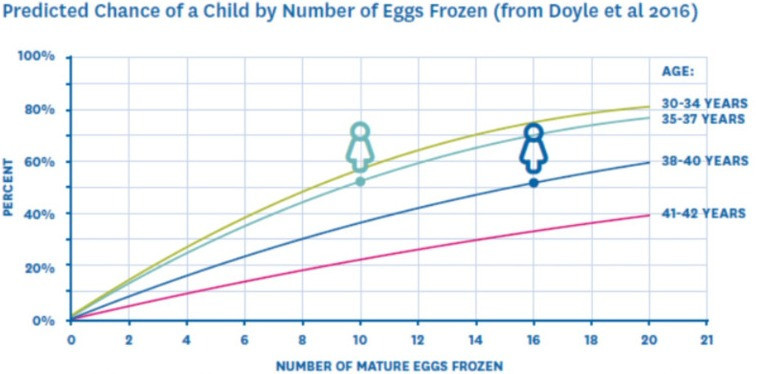views

The procedure of freezing an egg for fertility treatment is similar to IVF. The egg-freezing method involves the use of injections to stimulate the growth of eggs within the ovaries. Serial ultrasounds are performed to monitor the growth of the follicles containing eggs. Once these eggs have matured, they are carefully collected by egg retrieval procedure performed under anaesthesia and preserved through freezing.
But how many eggs should you freeze for a successful outcome? Let’s find out.
How Many Eggs You Should Freeze?

Generally, the more eggs you freeze, the higher the chance of success, as it increases the likelihood of having viable embryos when you decide to use them for pregnancy. Age is another significant factor in freezing an egg for fertility treatment because, with every passing year, the egg quality goes down.
- Women Around 30 Years: Freezing 20 eggs gives a good chance of having a live birth (70-80%).
- Women At 35-37 Years: Freezing 30 eggs provides a good opportunity to have a live birth (75-80%).
- Women At 38-40 Years: Freezing 20-30 eggs gives a good chance of having a baby (about 75%).
- Women 40-42 Years: Freezing 30-40 eggs provides a good opportunity of having a baby (about 50%).
A woman's ability to freeze eggs is also influenced by her egg reserve. These desirable numbers become unachievable with advancing age due to falling egg reserve and quality. Even at 30 years old, a woman with a low egg reserve may struggle to freeze 20 viable eggs. One may need multiple cycles of injections and egg retrievals to be able to freeze an optimum number of eggs.
AMH (anti-Mullerian hormone) is a hormone that is produced by the ovaries. It is a marker of ovarian reserve, which is a woman's number of eggs. A higher AMH level indicates a better ovarian reserve and, therefore, a better chance of success with egg freezing.
Cryosurvival: Not all the eggs that are frozen would survive the process of freezing and warming. This depends on egg quality and the skill of the Embryologist.
Factors Affecting the Success Rate and Decision of Egg Freezing
There are several factors that can affect the success rate and decision of egg freezing, including:
- Menstrual health
- Egg reserve
- Age
- AMH
- Lifestyle habits, e.g., excessive drinking or smoking
- Laboratory standards
- Embryologist skills
- Egg-freezing cost in Delhi
Here are some tips to improve your egg-freezing results:
- Freeze your eggs at a young age.
- Follow a healthy lifestyle.
- Avoid smoking and excessive alcohol consumption.
- Manage stress levels.
If you are considering egg freezing, it is important to talk to an IVF specialist in Delhi. This will help you determine if egg freezing is right for you and make sure that you are prepared for the process.
Conclusion!
Egg freezing is an effective way of preserving fertility and offering women greater control over their reproductive choices. To maximize your chances of success, it's crucial to have realistic counselling.
If you are considering freezing an egg for fertility treatment, schedule a consultation with IVF Specialist Dr. Rhythm Gupta. She will guide you through the entire procedure.




















Comments
0 comment